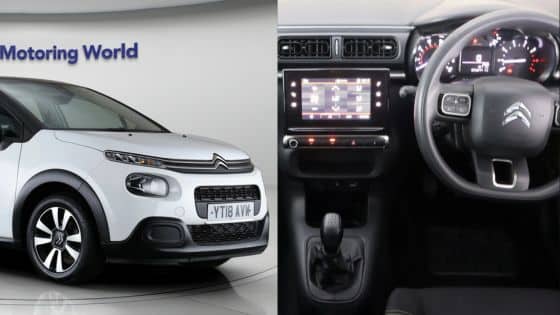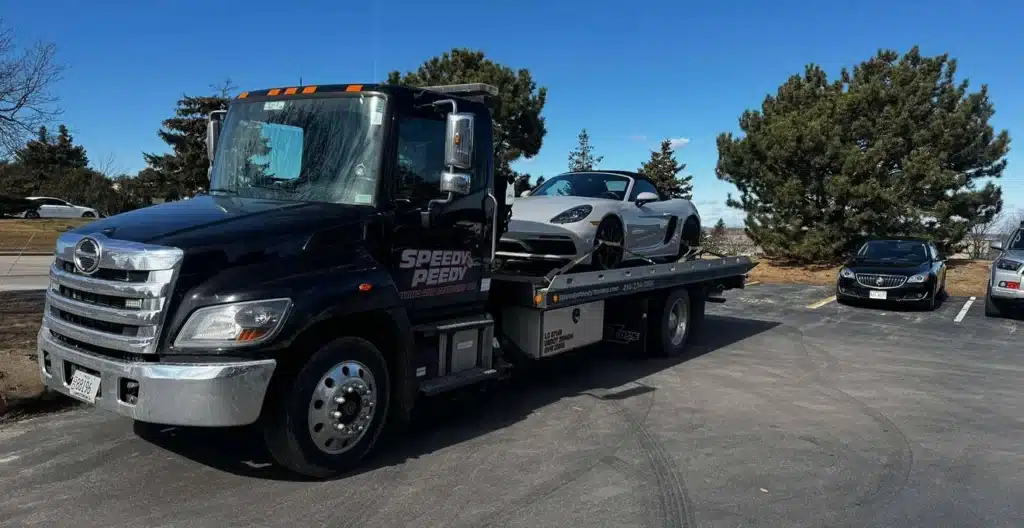
Few situations are more frustrating than returning to find your vehicle has been towed. For many drivers, the shock quickly turns into stress as they begin to worry over steep fees, confusing policies, and limited options for getting their car back.
Unfortunately, there are several predatory towing practices in place, such as excessive charges or unclear signage, and they are especially commonplace in states like Wisconsin.
In 2025, drivers in the Cheese State need to stay alert and informed to avoid becoming victims of weak and predatory towing regulations. By understanding how towing works, recognizing red flags, and knowing your rights in Wisconsin, you can better protect yourself and prevent an already stressful situation from becoming even worse.
Wisconsin’s Inadequate Towing Regulations
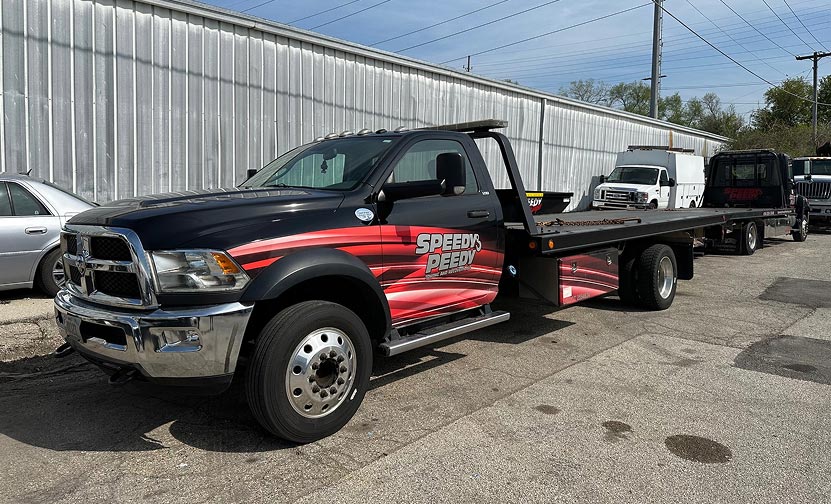
No one is immune to avoiding the need for emergency roadside assistance, even those in these great Midwestern states.
To understand how weak Wisconsin towing regulations are, here’s a few basic fact about how America’s Dairyland ranks among other U.S. states: Wisconsin ranks 31st of 51 U.S. states and districts in terms of consumer protection towing practices – that equates to a C-, and it’s not good.
While predatory towing is a nationwide issue, staying informed about Wisconsin’s particular predatory towing laws will help you stay protected in a stressful towing situation.
Unfortunately, these weak laws and missing regulations encourage predatory towing practices by companies without pushback. These so-called professionals operate under the guise of recovering your vehicle only to exploit the laws.
What are the Weak Towing Regulations in Wisconsin?
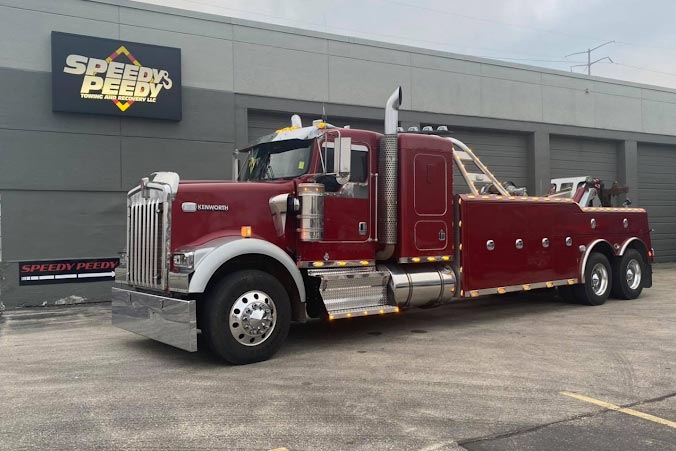
The weakest towing regulations in Wisconsin revolve around who towing companies are required to notify once they tow a vehicle.
In Wisconsin, the only party specifically required to be notified is law enforcement. This means that towing companies may totally avoid calling the vehicle’s owners during emergency roadside assistance and simply place that responsibility onto law enforcement.
Depending on how law enforcement handles the situation, the owner of the vehicle can be legally oblivious to their vehicle’s whereabouts for hours, with only the faintest idea that it could have been towed, and never to where.
4 Key Towing Regulations Missing in Wisconsin
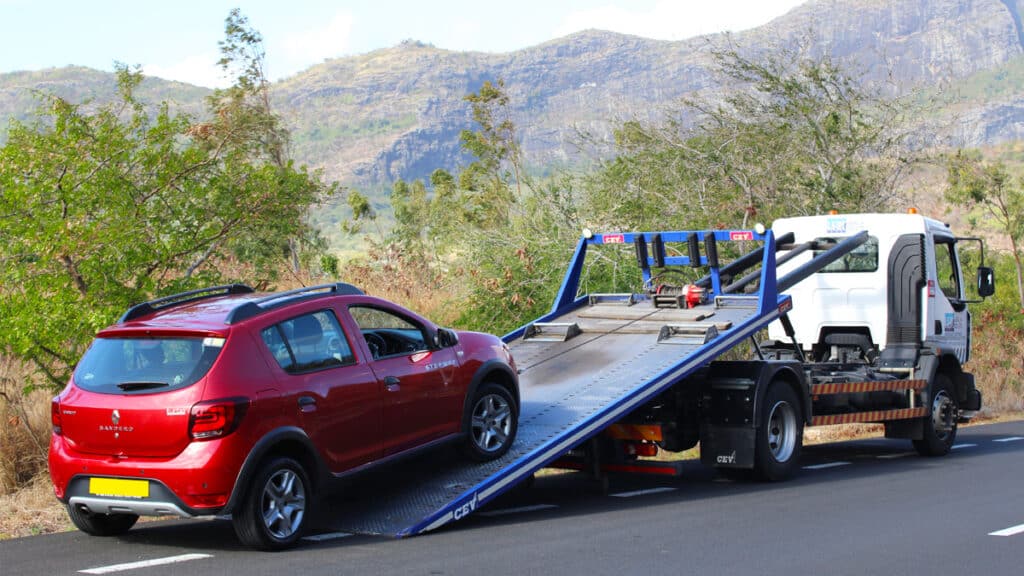
Apart from weak regulations, there are regulations that should exist within the state of Wisconsin but do not. The true danger of this lies in the fact that predatory towing companies come in to ”legally” fill in the blanks.
Protect yourself by understanding what these missing laws should contain and how far predatory towing companies may go for emergency roadside assistance:
Rates and Billing. There are no laws requiring towing companies to publicly display their rates. When the law does not clearly outline how a towing company’s rates must be displayed, towing companies now have the liberty to set their own policies. This often leads to challenging and unfavorable conditions for those who attempt to reclaim their towed vehicles.
In the same vein, there are no laws requiring towing companies to provide an itemized bill for a towing service. This can lead to them, of course, setting their own standards and even charging you various fees “included in the price.”
Also, towing services in Wisconsin are not required to accept major credit cards. This means that a predatory towing company may ask for “cash only,” putting many people who haven’t carried cash in years in an even more stressful situation.
Rights of the Vehicle Owner. There are no laws requiring the tower to release the vehicle if the owner returns before the vehicle is towed. Having your vehicle towed is already a very stressful situation, but when there are no regulations requiring the company, who merely wants your money, to let the vehicle go, you’re stuck watching them drag it away.
If the tow is proven to be illegal, there are no specific regulations requiring a company to offer any compensation other than a returned vehicle.
There are also no laws in Wisconsin that require a towing company to allow owners access to their personal items in a towed vehicle. So, even if the tow is perfectly legal, you might have to pay to access critical items that you may even need to get your vehicle back, like your purse or wallet.
If your vehicle is damaged during emergency roadside assistance or while in storage, state law doesn’t protect you with reimbursement.
Photos of Towed Vehicles. There are no laws regarding whether pictures of towed vehicles are required. Because of the number of predatory towing companies, one can only imagine how many towing “professionals” are failing to take photos, since it is not a legal requirement, and getting away with any damage done during the towing process or while in storage.
Charging Property Owners. There are no laws stating whether tow vehicles can scan private properties for illegal parking. With no regulations in place to protect private property owners from being scanned by a towing company, they may use this discretion to patrol on or around private property to scout towing opportunities.
This doesn’t just create trouble for victims of these tows, but for property owners who deserve better protection of their rights.
What is Wisconsin Doing Right?

While Wisconsin is lacking in many ways as far as towing regulations, they aren’t leaving people completely in the dark. Here are some protective towing regulations that Wisconsin does provide for its citizens.
- Clear tow-away signs are required in parking areas
- The maximum towing rate for non-consensual towing is $150.
- The maximum storage rate for non-consensual towing is $25 per day for outdoor spaces, $35 for indoor spaces, and there is no fee for any day the facility is open less than 4 hours.
- No kickbacks are given to the owner, lessee, or agent of the property from which the vehicle is towed.
- The designated hours when an owner can retrieve their vehicle are all normal business hours.
It is easy to be unnerved by the lack of regulations in Wisconsin. But learning both what is in place and what isn’t can help you deal with predatory towing practices to receive better emergency roadside assistance.
Protect Yourself. Stay Informed on Wisconsin’s Towing Laws – and Any Missing Regulations
Predatory owing may be unavoidable at times, but it doesn’t have to leave you feeling powerless. By keeping tabs on existing and nonexistent towing laws, asking questions, and knowing what to watch for, you can protect your wallet—and your peace of mind.
- 0shares
- Facebook0
- Pinterest0
- Twitter0
- Reddit0










